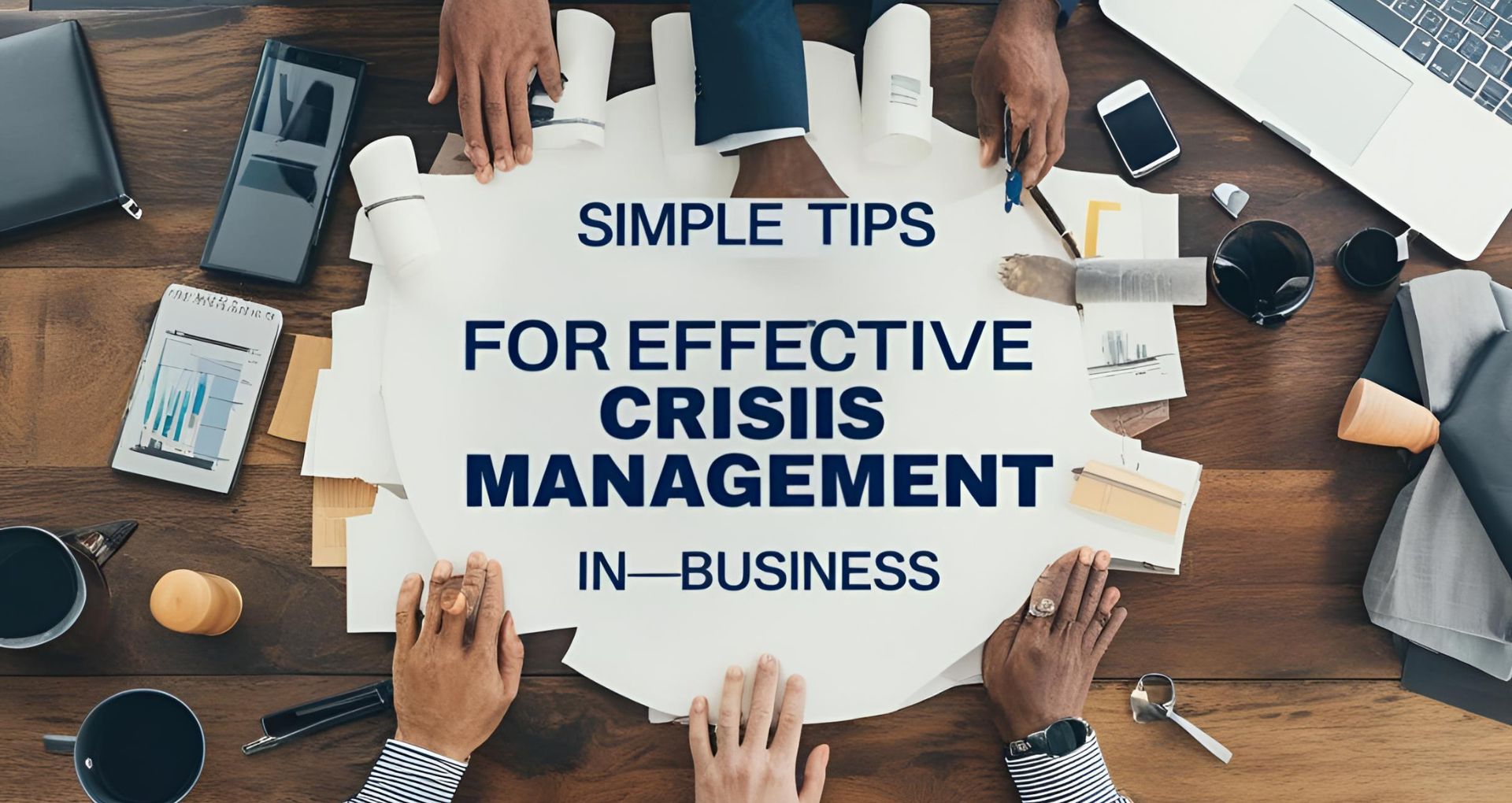At some point, all Crisis Management Business have to deal with unanticipated functional issues, fiscal problems, and heads. A business’s mourning show whether that company is thriving or floundering. Anyway, a well- managed extremity can either lead to a business roaring or fully run- down. In this blog, we will partake seven practicable tips to attack extremity head- on, secure your character, and come out on top.
Have a Crisis Plan Ready
Think of your extremity plan like a fire extinguisher — you hope you noway need it, but it’s important in any exigency. Consider possible issues your business might face, who’ll manage them, how you’ll reach out to your platoon and guests, and the processes to control the situation. Make sure there’s a result for every issue indeed if it’s simple. Flash back to Review and Update your plan, at doubly a time. This way, your plan will be helpful as your business develops.
Talk easily and Actually
We all know that heads can be at any time; thus, everyone – your mates, workers, guests – expects answers ASAP. Don’t try to ignore the problem or put it in unclear terms. Simply tell the verity, no matter how unwelcome it might be. Inform them about the strategies being used to offer a result and what implicit way could be taken. counting on silence or explaining only a scrap will strip you of trust and blemish your character. Let people know what happed, what you’re doing to fix it, and how they’re affected.
Produce a Crisis Team
Make sure there’s a many trusted people on hand who can step up in the event of a problem. This group, generally appertained to as a extremity platoon, should be composed of several representatives from the company, like one person from leadership, HR, marketing, and operations. All of them must have a complete grasp of the situation, their task, and be ready to act nearly presently. They must control the operations, talk to workers and guests and make sure everything is automated and running easily.
Take Care of People First
Your guests and workers are the most vital people during any extremity. Check on your platoon first. Make sure they’re safe, streamlined, and duly supported. give them with information, guiding them through what’s passing and how it might affect their places moving forward. also, move on to your guests. Inform them of the situation and how it may impact them alongside the way you’re taking in trying to fix the problem. People will forget what you said, but they will noway forget how you made them feel.
Use Social Media the Right Way
The internet is the first place people go to break any issue they have. In times of urgency or trouble, your website and social media can be of help. Make sure that the public is handed with proper updates and information concerning the way effects progress.However, they should be dealt with politely, If your guests have questions or are displeased. The person dealing with your posts and updates should know how to respond hypercritically and in a soothing manner. Always prepare the right dispatches to be transferred to avoid aggravating your situation.
Learn After the Crisis
Once the extremity is resolved, identify the important effects What were the successful rudiments? And what did n’t be as anticipated after the extremity was resolved? What conduct should your platoon take for enhancement coming time? Bandy these issues openly with your platoon members. This is a precious occasion to acclimate your extremity plan and preparing for unborn scripts on Crisis Management Business. Each challenge comes with a assignment. There’s always commodity new to learn, and investing your time in this will set you piecemeal from the competition.
Final Words Stay Calm, Be Ready
Crisis situations may bring fear; still, they can be managed effectively; If they’re handled well, a extremity can come an occasion ready to be employed.
Then’s what to flash back:
- Keep a plan ready in advance.
- Maintain clear and honest communication.
- Look after your people.
- Ensure you learn and grow from every experience, no matter how big or small







